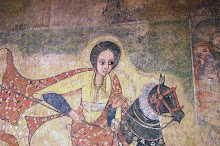
This past May, I promised this to myself: I would review all the sciences, practice verbal reasoning passages, and take the MCAT in September. 2011 was going to be the year in which I would follow my dream.
Picture: Medical College Admission Test (MCAT)
If you want to make God laugh, tell him about your plans - Woody AllenIt all started well. My review began in mid-June. I found inspiration in a couple of my favorite bloggers who were in the same boat and found time to write about their experiences. July came and went. So did August. To my astonishment, my progress was excruciatingly slow. Spending the dog days of Summer studying for the MCAT would have been delightful if it had not been very time-consuming, especially to a non-traditional pre-med. I have been out of school in a very long time and I have forgotten how to study and manage time. I was mostly surprised to find out that I was only able to complete half of the questions in the allocated time. That would not have been surprising if it had just been for the verbal reasoning section. But that was the case for the physical and biological sections as well. After a long analysis, I could not convince myself that I was fully prepared and I did what I dreaded to do the most. I postponed.
Indeed it is better to postpone, lest either we complete too little by hurrying, or wander too long in completing it - TertullianI am already looking forward to 2012 hoping it will be a fruitful year!
Picture: Medical College Admission Test (MCAT)









